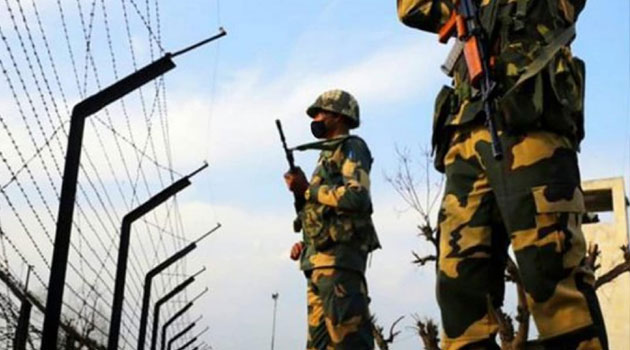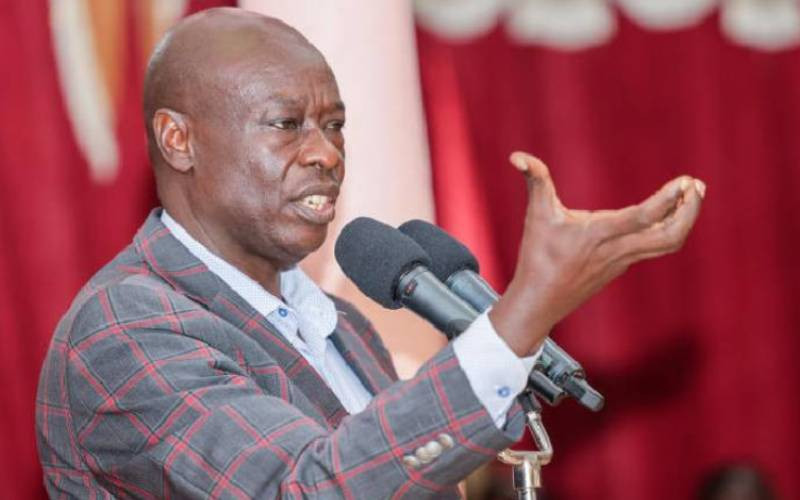NAIROBI, Kenya, Sep 17 — Security experts in Kenya and Somalia have proposed the creation of a border defense force as part of long-term measures to combat the growing threat of violent extremism in the region.
Speaking Thursday during a virtual discussion hosted by Counterterrorism Policing Kenya — a joint initiative of State, Non-State Actors and Citizens on counterterrorism efforts, participants argued that the scaling up of military presence in terror-prone areas will play a crucial role in preventing the penetration of extremist elements seeking to destabilize the region.
Their sentiments come at a time when the Somalia-based jihadist group Al-Shabaab continues to pose a significant threat in the two countries and the Horn of Africa region
While applauding Kenya for its gains in the fight against terrorism, the participants called for enhanced vigilance and surveillance to prevent the terror outfit from conducting further attacks.
“There is all the indication that Al-Shabaab is not just a terror organization, but it is also an insurgency and wants to create structures of an insurgency. So, in addition to classic counter-terrorism strategies, we also need counter-insurgency techniques including better military muscle and better equipment,” Rashid Abdi, Chief Analyst, Horn of Africa and the Gulf said.
To win the war on terror, Abdi proposed that once the border force has been created, the Kenyan government should provide them with backing from local police reserve units and the border communities.
“I think just simply militarizing the border, deploying the KDF is not going to be effective in the longer-term, you need to also involve the people of the region,” he said.
Abdi pointed out that Kenya’s terrorism problem is intrinsically related to its military engagement in Somalia adding that the new administration should devise a better strategy as it prepares to exit the country to prevent reversing the gains made over the years.
Kenya’s forces are currently serving under the AU Transition Mission in Somalia (ATMIS) alongside troops from Burundi, Djibouti, Ethiopia, and Uganda and are tasked with helping Somali forces fight the Al-Qaeda-linked militant group which continues to wreak havoc in the region.
However, plans are underway for the troops serving under the ATMIS umbrella to leave the country by 2024 and transfer all the responsibilities to the Somali forces.
“My expectation and my hope is that the current President (William Ruto) will actually recommit Kenya’s engagement in Somalia for the time being so that everything is choreographed, and Kenya does not make a hasty retreat,” Abdi stated.
Kenyan troops first entered Somalia in 2011 when the country launched a military offensive against the Al-Shabaab in an operation code-named “Operation Linda Nchi.
Josephine Kuluo, a lawyer and security expert, on her part recommended the establishment of a special-multi-regional body to curb insurgency which she said would play a critical role in intelligence gathering and sharing.
“Sharing intelligence is like dealing with the issue halfway. Most of the time you will find a country like Uganda is aware of an impending attack while Kenya is unaware, and this information is not shared. In some cases, we have issues where the DCI is aware while other agencies are not aware, but if we had a single body that collects intelligence and share them in real time, this would go a long way in preventing these attacks,” she said.
Another panelist, Hassan Abdikadir, Director of Accept International, a Japan-based Non-Governmental Organization on peacebuilding, called for collaboration between different organizations dealing with Countering Violent Extremism (CVE) and other stakeholders to ensure maximum gains.
“One key thing that hinders the agencies from undertaking their work is resources. We have so many organizations working on CVE, especially in the IGAD region but there is a lack of cooperation among the stakeholders especially those who are working at the grassroots level,” he said.
Abdikadir further pointed out that the lack of opportunities for young people especially in the North-Eastern region- Mandera, Garissa, Isiolo, Wajir, and Rift Valley- Pokot, Baringo, and other affected areas has eroded the gains that have been made.
He went forward to propose the involvement of youth in key decision-making processes in a bid to empower them.
Gordon Kachola, a migration studies expert, said the new administration should focus on the justice aspect, saying some of the youth who end up in terrorist organizations are usually pushed into the wall due to past injustices.
Kachola said that some of those youths usually resolve to join terrorist organizations to “fight back” those involved.
“It will be paramount for the current regime to think of how not to always antagonize communities and individuals to a level where they upset other young people and this antagonization comes in terms of extra-judicial killings,” he said.
Mandera South Member of Parliament Abdulwahab Kore, on his part who also spoke called on the government to improve on past counter-terrorism interventions including the Nyumba Kumi initiative which he argues, has failed to work on arid and semi-arid areas because of frequent migration in search of water and pasture.
Kore went forward to say that the government also needs to step up its community policing to ensure that there is a cooperation between locals and security agencies which he argues will make it easier to share critical information.
He further called for better training and remuneration for the National police Reservists operating in terror-prone areas in order to motivate them
“The police reservists are now part of the National Police Service; they work very well in terms of supporting the work of the police, particularly in complex and tough areas like the constituency I come from (Mandera South)… Their motivation in terms of some money for the upkeep would be some of the things I would like to see the new Government work on,” he said.
The Mandera South legislator further called on the revising of the guidelines on cross-border cooperation to ensure communities at the grassroots benefit from that kind of engagement to ensure inter-community collaboration across the borders.
“A lot of cooperation and collaboration happens at the top national level, but we need to improve on them so that people from the grassroots level benefit,” Kore said.
Kore said that more efforts need to be put in place to change the religious narrative which he said has been exploited by the terrorist organization.
Kenya just like her neighbor Somalia has borne the brunt of several large-scale and small-scale attacks from the Shabaab militant group.
Kenya last suffered a major terror attack on January 15, 2019 at the Dusit D2 Hotel complex in Nairobi where more than 20 people were killed among them sixteen Kenyans, one American, a South African, a Briton, and 3 others who were not immediately identified. The attack was claimed by Al-Shabaab.
Other major attacks carried out by the Shabaab include the Westgate Shopping Mall on September 21, 2013 that left 71 people dead among them four terrorists and Garissa University on April 3, 2015 when 147 people, many of them students were killed, among others.
In Somalia, one of the major attacks occurred on December 2019 which left at least 80 people dead following a suicide car bomb at a checkpoint in Mogadishu.




















Discussion about this post